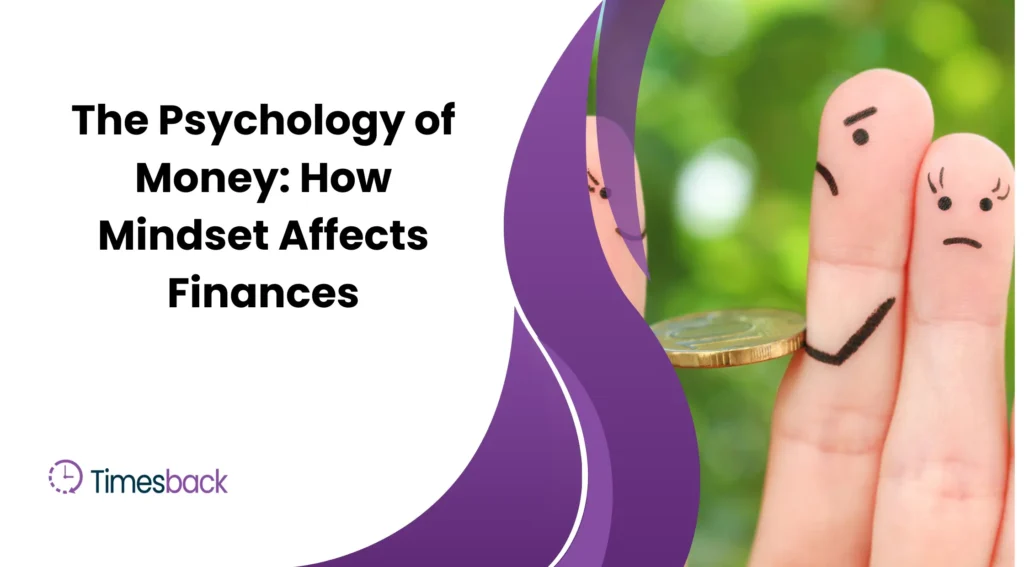金钱心理学:心态如何影响财务状况

金钱心理学影响着我们财务生活的方方面面,从我们的消费决策到我们创造持久财富的能力,无一不受到影响。
广告
了解我们的思维方式如何影响财务状况,可以释放财务安全的潜力,即使是对于收入不高的人来说也是如此。
行为经济学的最新研究表明,人们对金钱的看法(通常在早年生活中形成)既可以促进也可以阻碍财务成功。
只要转变正确的思维方式,即使是没有接受过正规金融教育的人也能学会掌控自己的财务状况。
1. 财务思维:财富积累的基础
广告
个人理财的核心在于我们对待金钱管理的态度。
那些将金钱视为增长和安全工具的人,往往比那些抱有匮乏或规避心态的人做出更谨慎的财务决策。
成长型思维将金钱视为实现个人目标的手段,促使个人寻求学习机会、进行战略性储蓄并承担经过深思熟虑的投资风险。
相反,匮乏心态会引发恐惧,往往导致冲动消费和逃避财务规划。
一项研究 经济心理学杂志 以鲜明的措辞说明了这种差异,指出具有积极财务心态的人比悲观的同类人多储蓄了高达 35%。
这种视角上的转变,在实现财务安全方面,其影响可能与增加收入一样重要。
培养成长型思维的人可以从复利效应中受益:随着储蓄和投资的增长,信心也会增强,从而形成促进财务韧性的良性循环。
| 思维类型 | 金融行为 | 长期财务结果 |
|---|---|---|
| 成长型思维 | 专注于储蓄和投资 | 积累财富和财务保障 |
| 匮乏心态 | 优先考虑短期支出 | 储蓄有限,可能负债 |
| 固定型思维 | 避免财务规划 | 财务状况停滞或恶化 |
2. 认知偏差对金融决策的影响
理财并非完全理性;它深受认知偏差的影响,认知偏差是我们大脑为了简化决策而采取的思维捷径。
不幸的是,这些偏见往往会导致次优的理财行为。以“损失厌恶”为例。
这种偏见使人们害怕损失胜过重视收益,导致许多人即使潜在回报很高,也会避免进行中等风险的投资。
同样,“现状偏见”可能会使人们陷入不利的财务习惯中,仅仅因为这些习惯是熟悉的,无论是继续使用高收费银行还是避免投资账户。
理解并克服这些偏见对于培养更积极的理财心态至关重要。
通过认识到情绪何时会影响判断,人们可以开始根据事实和长期影响,而不是恐惧或习惯来做出财务决策。
例如,采用美元成本平均法,定期投资固定金额,可以帮助克服损失厌恶心理,因为它能减少短期市场波动的影响。
3. 情绪化消费:压力如何影响财务健康
情绪化消费是实现财务稳定的最大障碍之一。
当人们因为压力、无聊或社会压力而购物时,他们往往最终会购买自己不需要的东西,从而导致后悔和经济压力。
了解金钱心理学的人会识别这些情绪触发因素,并采取策略来减轻其影响。
制定预算、设定明确的财务目标以及练习正念只是可以帮助抵御即时满足欲望的几种工具。
例如,为非必需品购买设定“等待期”,让人们有时间思考自己是否真的需要该物品,还是仅仅出于情绪冲动而购买。
追踪消费习惯还可以发现与特定情绪或情况相关的模式。
这种自我意识有助于用深思熟虑的选择取代情绪化消费,从而实现更大的财务目标,例如为退休储蓄或偿还债务。
| 消费触发 | 情感影响 | 财务后果 |
|---|---|---|
| 压力 | 短期缓解 | 债务增加 |
| 社会压力 | 临时验证 | 储蓄受损 |
| 害怕错过 (FOMO) | 短暂的兴奋 | 导致冲动性购买 |
4. 社会影响在金钱心理学中的作用
社会影响对我们的金钱观念有着深远的影响,它常常以我们可能意识不到的方式塑造着我们的理财习惯和行为。
例如,同辈压力和社会比较会驱使个人超支消费,以跟上朋友或邻居的步伐,从而导致负债和经济不安全。
社交媒体尤其放大了这种影响,它展示了一种理想化的生活版本,而这种生活版本复制起来代价高昂。
学会将个人价值观与社会影响区分开来,是建立积极金钱观的关键方面。
通过关注个人财务目标而不是外部认可,个人可以做出真正有利于其长期福祉的决定。
设定界限,例如限制接触以消费者为主导的内容,可以进一步保护个人的财务健康。
5. 思维模式转变:从匮乏到富足
将匮乏心态转变为富足心态,需要有意识地改变我们对金钱的看法。
匮乏心态通常与恐惧和不安全感联系在一起,使人们相信金钱永远稀缺,从而导致焦虑和冲动的决定。
与之相反,富足心态认为,通过规划和韧性,财务增长是可能的。
树立富足心态可以改变一个人的财务观念。
像感恩日记这样的简单做法可以帮助人们珍惜自己所拥有的,并将精力重新集中在成长而不是局限上。
这种思维方式的转变鼓励人们采取更积极主动的理财方式,例如建立多种收入来源或投资于个人发展以提高赚钱潜力。
因此,基于恐惧的消费循环可以被战略性储蓄和投资模式所取代。
6. 金融教育:通往心理赋能之路
金融素养往往是连接理想与行动的关键环节。通过了解预算、储蓄和投资的基础知识,人们能够获得做出自信决策所需的工具。
金钱心理学在某种程度上就是要消除围绕财务的神秘感。
这种知识使人们能够设定切合实际的目标,跟踪进度,并在不畏惧未知的情况下做出明智的选择。
教育培养了以成长为导向的理财思维,使人们更有可能投资退休账户、寻求专业理财建议或建立应急基金。
金融教育不一定非得是正式的;在线课程、金融播客和个人理财书籍等资源可以提供任何人都能获得的宝贵见解。
这些信息可以起到缓冲冲动决策的作用,使个人能够掌握策略,自信地规划自己的财务之路。
7. 培养更健康的金钱观念的实用步骤
改变一个人的思维方式听起来可能令人生畏,但随着时间的推移,微小而持续的行动可以带来巨大的改变。
设定清晰、可实现的财务目标可以帮助个人更好地掌控自己的财务状况。
将购房等大目标分解成更小的里程碑,可以提高动力并建立信心。
养成对财务进步(无论多么微小)心存感恩的习惯,也有助于培养成长型思维。
追踪个人净资产、制定每周预算审查计划、优先考虑必需品而非想要的东西,这些都是简单而有效的策略,可以强化良好的理财习惯。
随着理财习惯的改善,财务安全也会增强,从而形成良性循环,促进长期财富的积累。
结语:积极的理财心态的持久影响
归根结底,金钱心理学告诉我们,财务成功不仅仅取决于收入或资产;它取决于我们对待财务的态度。
认识到并转变消极的财务观念,并接受以增长为导向、富足的金钱观的人,可以摆脱限制性的模式,创造更加繁荣的未来。
金融素养、情绪意识和对长期目标的关注是这一转变的基石。
通过培养一种重视目标而非即时满足的心态,任何人都可以摆脱财务焦虑,走向稳定与平静。
只要有意识、有毅力,就能实现财务健康,这证明改变思维方式确实可以改善一个人的财务状况。
